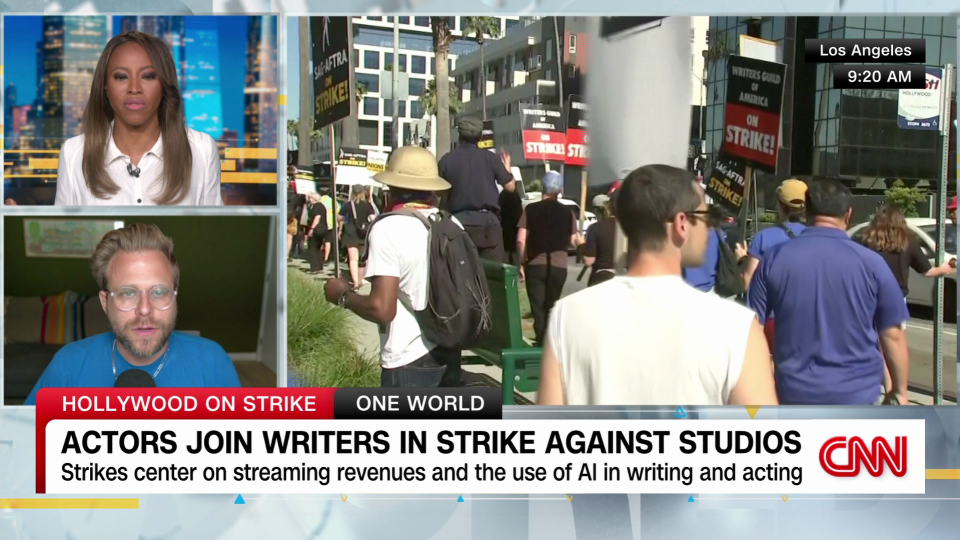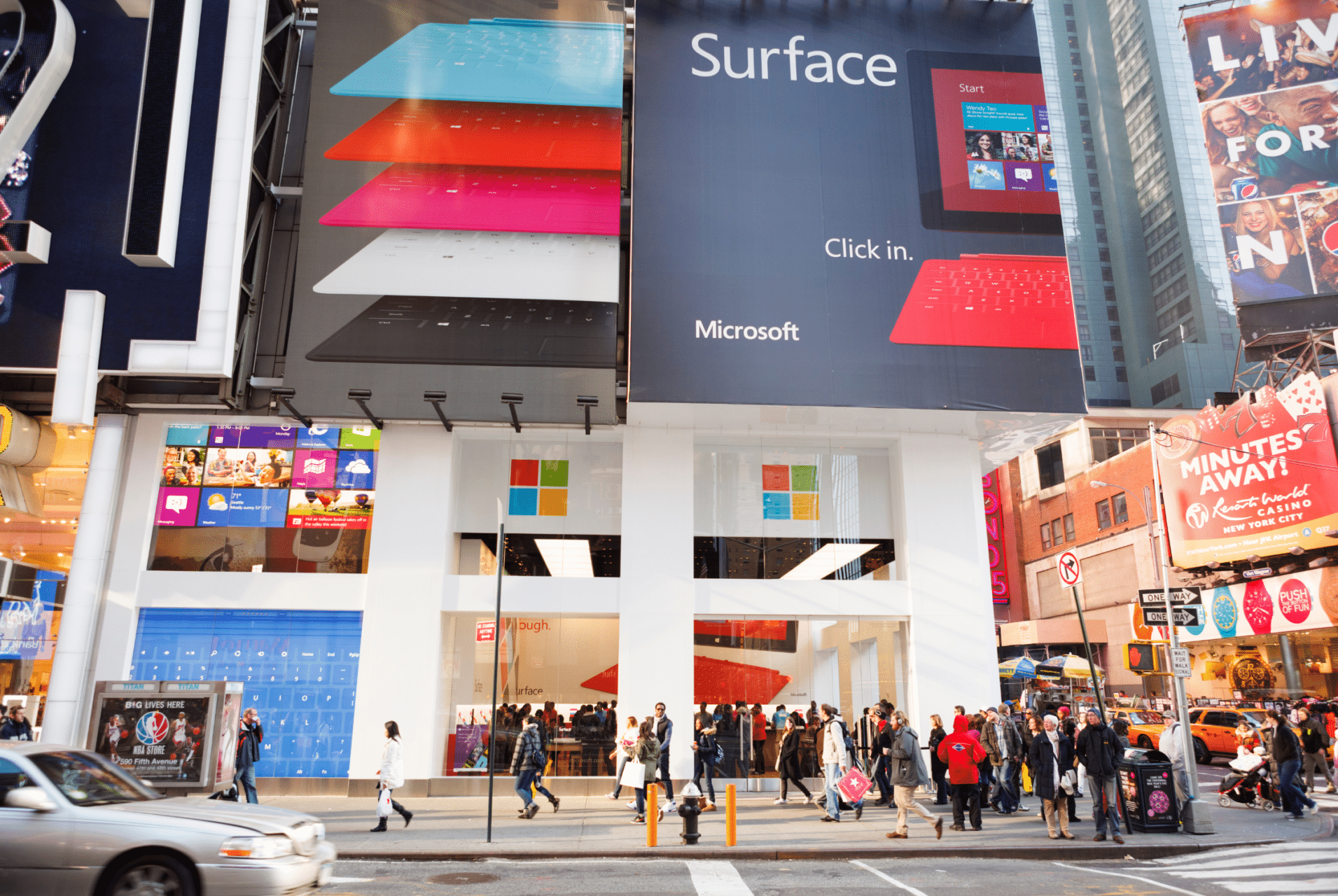Double Trouble In Hollywood: Writers And Actors Strike Simultaneously

Table of Contents
Background: While individual writers' and actors' strikes have occurred throughout Hollywood history—most notably the 1988 writers' strike and the 1960 actors' strike—this dual strike marks a significant moment. These past strikes, while disruptive, did not involve both unions simultaneously, highlighting the severity of the current situation and the shared concerns driving the action.
This article aims to analyze the causes, implications, and potential outcomes of this historic Writers and Actors Strike, examining the specific demands of each union and the broader impact on the industry and beyond.
The Writers' Strike: Core Issues and Demands
The WGA strike stems from deep-seated concerns regarding fair compensation, creative control, and the rise of artificial intelligence (AI) in the industry.
Fair Wages and Residuals in the Streaming Era:
The shift to streaming services has drastically altered the compensation model for writers. Traditional methods of payment, including residuals from reruns and syndication, have been significantly diminished or eliminated. Writers now demand a fairer share of the immense profits generated by streaming platforms like Netflix, Disney+, and HBO Max.
- Demand: Increased minimum pay for writers.
- Demand: Fairer residuals based on streaming viewership.
- Demand: Transparency in streaming revenue calculations.
Creative Control and AI Concerns:
The WGA is also fiercely fighting for creative control, pushing back against the increasing use of AI in scriptwriting. Concerns revolve around the potential for AI to devalue writers' work and replace human creativity.
- Demand: Restrictions on the use of AI in writing and script generation.
- Demand: Protection of writers' intellectual property rights.
- Demand: Increased input from writers in the creative process.
The Actors' Strike: Parallel Concerns and Demands
SAG-AFTRA's strike mirrors many of the writers' concerns, particularly regarding fair compensation and the impact of new technologies. However, they also highlight specific issues affecting their profession.
Fair Compensation and Residuals:
Similar to writers, actors are facing decreased compensation in the streaming era. Traditional residual payments, which provided a significant portion of their income from reruns and syndication, have dwindled.
- Demand: Increased minimum pay for actors.
- Demand: Fairer residuals from streaming platforms.
- Demand: A greater share of profits from streaming services.
Self-Tape Auditions and Working Conditions:
The widespread use of self-tape auditions has become a major point of contention. Actors argue this practice undervalues their work, increases their workload, and impacts their well-being. Furthermore, concerns remain about safety and fair treatment on set.
- Demand: Regulation of self-tape auditions to protect actors' time and resources.
- Demand: Improved safety standards and working conditions on set.
- Demand: Fair treatment and respect for actors' contributions.
AI's Impact on Actors' Roles:
The potential for AI to replace actors in the future is a major concern. Actors demand protection against the use of AI-generated performances that could undermine their livelihoods.
- Demand: Restrictions on the use of AI to replace actors in performances.
- Demand: Compensation for actors whose likeness is used with AI.
- Demand: Industry-wide guidelines on ethical AI usage.
The Combined Impact of the Writers and Actors Strike
The simultaneous strike by the WGA and SAG-AFTRA has created a crisis unlike any seen before in Hollywood.
Economic Fallout:
The strike has brought production to a standstill, causing a significant economic ripple effect. Production companies, studios, and related businesses are facing substantial losses and job cuts. The financial strain extends to countless individuals within the industry, including crew members, technicians, and support staff. Accurate figures are difficult to ascertain at this stage, but the impact is undoubtedly substantial.
Impact on Television and Film Production:
The immediate impact is a complete halt to the production of new television shows and movies. Many upcoming releases face significant delays, and the long-term consequences for the entertainment calendar are significant. The flow of new content will inevitably be disrupted, potentially influencing streaming services' offerings and network schedules for months to come.
Public Perception and Support:
Public opinion on the strike is largely supportive, with many understanding the concerns of writers and actors regarding fair compensation and the use of AI. This public support is crucial in the ongoing negotiations, influencing the pressure placed on studios and production companies to reach a fair agreement.
Navigating the Double Trouble in Hollywood
The core issues driving the Writers and Actors Strike are clear: fair compensation in the streaming era, creative control, and safeguarding against the disruptive potential of artificial intelligence. The outcome remains uncertain. Potential scenarios range from successful negotiation and a swift resolution to a protracted strike with long-term consequences. Alternative solutions, such as mediation and arbitration, may be explored.
Staying informed is critical. Follow reputable news sources covering the entertainment industry, such as Variety and The Hollywood Reporter, and monitor updates from the WGA and SAG-AFTRA websites for official statements and developments. Understanding the issues at the heart of the Writers and Actors Strike and supporting the strikers is vital as this pivotal moment in Hollywood history unfolds, potentially reshaping the future of the entertainment industry. The actors and writers strike is not just about pay; it's about the future of creative work itself.

Featured Posts
-
 Nouveautes Ge Force Now 21 Jeux Integres Ce Mois Ci
May 15, 2025
Nouveautes Ge Force Now 21 Jeux Integres Ce Mois Ci
May 15, 2025 -
 Jimmy Butler Game Status New Update On His Availability For Todays Game
May 15, 2025
Jimmy Butler Game Status New Update On His Availability For Todays Game
May 15, 2025 -
 Knicks Upset Celtics In Overtime Thriller Game One Victory
May 15, 2025
Knicks Upset Celtics In Overtime Thriller Game One Victory
May 15, 2025 -
 Herstel Van Vertrouwen College Van Omroepen En De Toekomst Van De Npo
May 15, 2025
Herstel Van Vertrouwen College Van Omroepen En De Toekomst Van De Npo
May 15, 2025 -
 Understanding Microsofts Recent Layoff Of 6 000 Employees
May 15, 2025
Understanding Microsofts Recent Layoff Of 6 000 Employees
May 15, 2025
